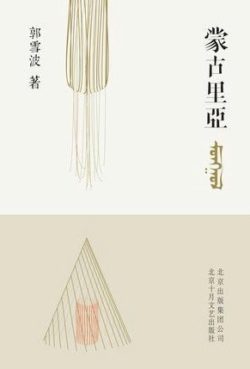September 2018: Guo Xuebo 郭雪波
 Guo Xuebo was born in Kunlun Banner on Inner Mongolia's Horqin Desert in 1948 and currently lives in Beijing. He has written a dozen or so novels, and many short stories, often revolving around aspects of Mongolian culture. A collection of his short stories has appeared in English (The Desert Wolf), French (La renarde du désert) and Japanese (砂漠物語). His novel 蒙古里亚 (working title: Mongoliya) is currently being translated by Bruce Humes.
Guo Xuebo was born in Kunlun Banner on Inner Mongolia's Horqin Desert in 1948 and currently lives in Beijing. He has written a dozen or so novels, and many short stories, often revolving around aspects of Mongolian culture. A collection of his short stories has appeared in English (The Desert Wolf), French (La renarde du désert) and Japanese (砂漠物語). His novel 蒙古里亚 (working title: Mongoliya) is currently being translated by Bruce Humes.
See also Guo's author page on Paper Republic.
We're delighted to feature Guo Xuebo as our Author of the Month this September. Guo and his translator Bruce Humes are joining us in Leeds for an exciting symposium focusing on non-Han fiction and film, so we're very much looking forward to discussing their work.
Another of the speakers at the symposium will be Brigitte Duzan, a French sinologist, linguist and translator, who has an excellent article in French on Guo Xuebo on her website Chinese Short Stories.
The extract we've chosen to feature this month is from the novel 蒙古里亚 (working title: Mongoliya), and was first published in the Asia-Pacific Journal: Japan Focus under the title The Mongol Would-be Self-immolator. Bruce provides a fascinating preface to his translation in the journal, discussing the 'export' of non-Han writing, and China's new 'Silk Road'.
The new “Kaleidoscope Series of China’s Ethnic Writers,” from China Translation & Publishing House, consists of poetry, novels and short story collections by a dozen or so non-Han writers, several of whose peoples have historically straddled China’s northern borders. Thanks to various grants, some of their novels are scheduled for publication in English in 2018, including two set in Xinjiang by Uyghur authors, Confessions of a Jade Lord (Alat Asem) and One Hundred Year Bloodline (Patigül), and a Mongolian thriller, Manba Rasang (Ayunga, Mongol).
- Read more here.
Bruce Humes specializes in translating Chinese-language fiction by or about China’s non-Han peoples, particularly those who speak an Altaic tongue, such as the reindeer-herding Evenki (Last Quarter of the Moon, by Chi Zijian) and the Uyghur in Xinjiang (Confessions of a Jade Lord, by Alat Asem). He headed online content development at Chief Executive China, hosts the blog 非漂 [Fēi Piāo], which is a wonderful resource on non-Han fiction, and on African literature in Chinese translation.
There's an interesting interview with Bruce here, from the South China Morning Post magazine.
You can read The Mongol Would-be Self-immolator in translation here and in the original Chinese here.
And keep an eye on our blog, which we'll be updating with more details following our September symposium.
 Set in China’s 21st-century Inner Mongolia, Mongoliya (蒙古里亚) is a semi-autobiographical tale by Guo Xuebo (郭雪波), a Mongol who grew up speaking the language of his people. It comprises three distinct but intertwined narratives: a spiritual journey, in which the author — ostensibly the narrator — seeks his Shamanic roots, long obscured in post-1949, officially atheist China; vignettes from the Mongolian adventures of Henning Haslund-Christensen, born to a Danish missionary family in 1896 and real-life author of the anthropological masterpiece Men and Gods in Mongolia; and the tribulations of Teelee Yesu, a modern-day fictional Mongol herdsman, considered by many to be the village idiot, whose very survival is threatened by desertification and coal mine truckers running roughshod over his tiny plot of land.
Set in China’s 21st-century Inner Mongolia, Mongoliya (蒙古里亚) is a semi-autobiographical tale by Guo Xuebo (郭雪波), a Mongol who grew up speaking the language of his people. It comprises three distinct but intertwined narratives: a spiritual journey, in which the author — ostensibly the narrator — seeks his Shamanic roots, long obscured in post-1949, officially atheist China; vignettes from the Mongolian adventures of Henning Haslund-Christensen, born to a Danish missionary family in 1896 and real-life author of the anthropological masterpiece Men and Gods in Mongolia; and the tribulations of Teelee Yesu, a modern-day fictional Mongol herdsman, considered by many to be the village idiot, whose very survival is threatened by desertification and coal mine truckers running roughshod over his tiny plot of land.
